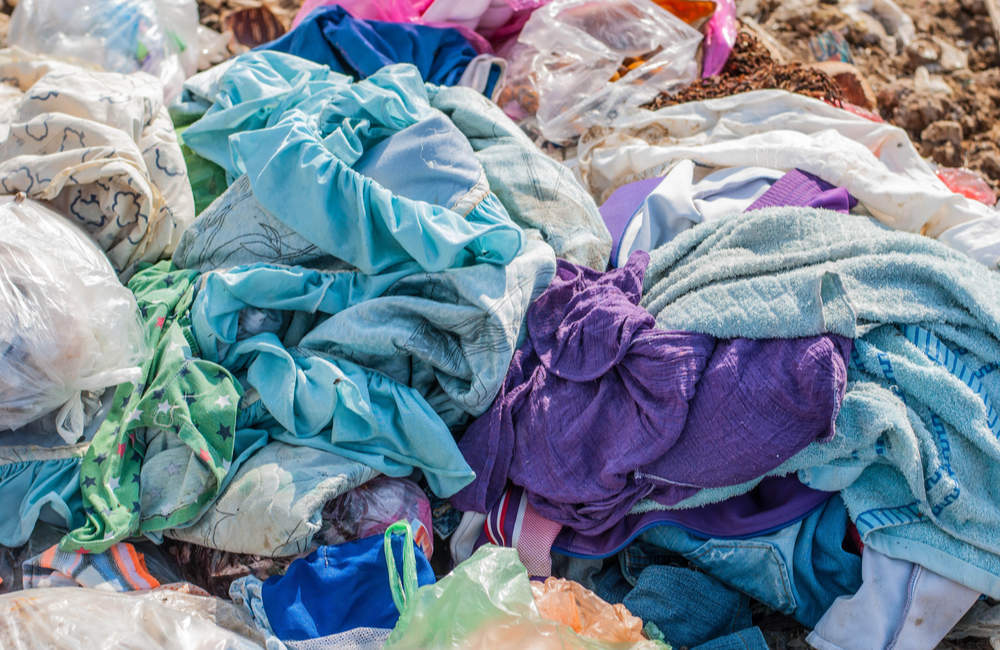
More than two tonnes of clothing are bought in the UK each minute according to a study by Oxfam. Oxfam estimates that each week 11 million pieces of clothing end up in the landfill.
Oxfam’s chief executive Danny Sriskandarajah said: “These staggering facts about fashion’s impact on the planet and the world’s poorest people should make us all think twice before buying something new to wear.
“We are in a climate emergency – we can no longer turn a blind eye to the emissions produced by new clothes or turn our backs on garment workers paid a pittance who are unable to earn their way out of poverty no matter how many hours they work.
“As consumers, it’s in our power to make a real difference. Buying second-hand clothes helps to slow the ferocious fast fashion cycle, giving garments a second lease of life.”

The Oxfam study showed that people are buying cheap clothes, wearing them a few times then they will throw them away. In 2016 there was an estimated 1,130,000 tonnes of clothing which were bought in the UK, this is an increase of 565% in the four years prior.
In an Oxfam survey of 1,000 Britons more than 50% were aware that fast fashion had a bad effect on the environment. Three in 10 were shocked at the extent to how fashion can damage the planet however, they would not change their shopping habits.
Fibres in clothing can pollute oceans and rivers which end up in our food chain. Also chemicals from cotton etc can be washed by rain polluting the oceans/rivers when the cotton is growing. This can all impact the environment in a negative way.
Rachel Kelly co-founded the sustainable brand Thought said: “All our clothes are sustainable, our labels are 100% cotton, we’ve changed our plastic bags to biodegradable bags, and we’ve changed all of our glue to a vegan glue. We believe that at each step of the process you can improve and for minimal cost you can make a big difference.
“We believe it makes business sense, we are an independently owned business we’re growing year on year in a really tough market place and we think we’ve made a really good business case for a sustainable lifestyle brand.
“In the last 10 months the consumer knowledge has increased enormously and it seems it’s a cultural moment, a cultural shift in people’s perceptions that they want to shop more sustainably.
“I think businesses will need to have a shift in how they want to produce their ranges and I think the consumer will lead the way by making different choices.”
Researchers have found that new clothes which are brought into the UK produce more carbon emissions per minutes than driving a car would.